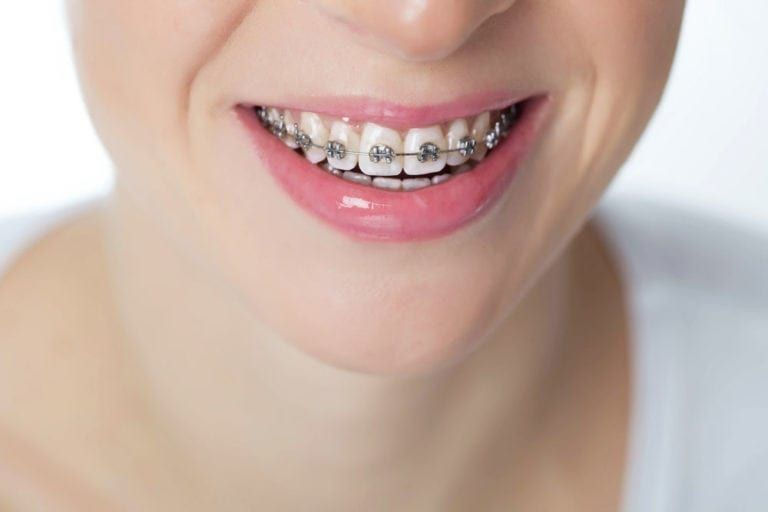How Often Should You Really Get Your Teeth Cleaned?
- dclinicdubai
- Jul 21, 2025
- 4 min read
Most people know that regular dental visits are important, but how often should you really be sitting in that chair for a professional cleaning? Whether you’re maintaining perfect teeth or managing specific dental conditions, the answer varies depending on your unique oral health. For those seeking advanced care, teeth cleaning in Dubai offers tailored solutions and modern technology that make these routine appointments more effective and comfortable than ever.

The Standard Recommendation:
The general guideline recommended by dentists is to get your teeth cleaned twice a year, or every six months. This schedule suits most individuals with healthy gums, low plaque levels, and no history of periodontal disease. Regular cleanings at this frequency help:
Prevent plaque and tartar buildup
Reduce the risk of cavities
Catch oral health problems early
Maintain fresher breath and whiter teeth
However, this isn’t a one-size-fits-all rule. Several factors could mean you need cleanings more often—or, in some rare cases, less frequently.
When More Frequent Cleanings Are Necessary:
Some individuals may need cleanings every 3 to 4 months, especially if they have specific risk factors or existing conditions. These include:
Gum Disease: Patients with gingivitis or periodontitis require more frequent cleanings to manage inflammation and bacteria.
Diabetes: This condition increases the risk of infections, including in the gums.
Smoking: Tobacco use can speed up plaque accumulation and delay healing.
Orthodontic Appliances: Braces and retainers can trap food and make oral hygiene more difficult.
Weakened Immune Systems: This includes individuals undergoing chemotherapy or taking certain medications.
Frequent dental cleanings help these patients stay ahead of problems that could escalate quickly.
When Less Frequent Cleanings May Be Acceptable:
Though rare, a dentist may suggest annual cleanings for those with exceptional oral hygiene, no medical risk factors, and zero history of gum disease or decay. Candidates for once-a-year cleanings generally meet these criteria:
Excellent brushing and flossing habits
Healthy gums with no signs of bleeding or inflammation
A cavity-free dental history
Balanced diet and limited sugar intake
Still, this is an exception, not the norm, and should only be considered under professional advice.
What Happens If You Skip Cleanings:
Skipping or delaying professional teeth cleaning can lead to a range of oral health problems, many of which are costly and painful to treat later. The consequences may include:
Plaque hardening into tartar, which can’t be removed at home
Gum inflammation and bleeding, signaling early gum disease
Bad breath (halitosis) caused by bacterial buildup
Tooth decay progressing silently beneath the gums
Tooth loss due to untreated periodontal disease
In places like Dubai, where dental technology and awareness are advanced, patients have more access than ever to preventive care—making it easier to stay on schedule with cleanings.
Tailoring Cleaning Frequency to Your Lifestyle:
Modern dentistry recognizes that oral health isn't isolated from lifestyle. Your diet, habits, and even your stress levels affect how often you should get your teeth cleaned. Consider more frequent visits if you:
Drink coffee, tea, or red wine daily
Eat a high-sugar or acidic diet
Experience high stress, which may cause teeth grinding
Are pregnant, which can cause hormonal gum issues
Use medications that reduce saliva production (dry mouth)
Dentists offering teeth cleaning in Dubai often conduct lifestyle assessments during checkups to offer individualized care plans.
Signs You’re Overdue for a Cleaning:
Even if you haven’t marked your calendar, your mouth will often signal when it’s time for a dental cleaning. Watch for these warning signs:
Persistent bad breath or a bad taste in your mouth
Bleeding gums when brushing or flossing
Tooth sensitivity, especially to hot or cold foods
Noticeable tartar buildup near the gum line
Gums that appear red, swollen, or are pulling away from the teeth
If you experience any of these symptoms, it’s best to schedule an appointment immediately—regardless of when your last cleaning was.
The Long-Term Benefits of Regular Cleanings:
Keeping up with professional teeth cleaning offers health advantages that go well beyond fresh breath and a bright smile. Over time, consistent care can help:
Lower your risk of gum disease and cavities
Prevent tooth loss and avoid costly dental procedures
Enhance your overall appearance and confidence
Detect early signs of serious health conditions, including oral cancer
Preventive care is far less expensive—and far less painful—than corrective treatments. That’s why most dental professionals emphasize the importance of sticking to your recommended cleaning schedule.
How to Maximize the Time Between Cleanings:
Even if you’re only visiting the dentist twice a year, strong daily habits can help maintain your oral health in the meantime. Here’s how to make your cleanings last:
Brush twice a day for two minutes each time using fluoride toothpaste
Floss daily to remove plaque between teeth
Use a mouthwash that kills bacteria and reduces plaque
Limit sugar, acidic foods, and stain-causing beverages
Drink plenty of water to keep your mouth hydrated
Replace your toothbrush every 3–4 months
Following these simple steps can significantly reduce the buildup of plaque and tartar between visits.
Final Thoughts:
While the general recommendation is to have your teeth cleaned every six months, personal factors like lifestyle, health conditions, and hygiene habits can influence how often you need professional care. In a city where advanced clinics and personalized treatments are readily available, teeth cleaning in Dubai ensures that your oral health plan fits your exact needs. The most important thing is to stay consistent, listen to your dentist, and never underestimate the power of preventive care.


Comments